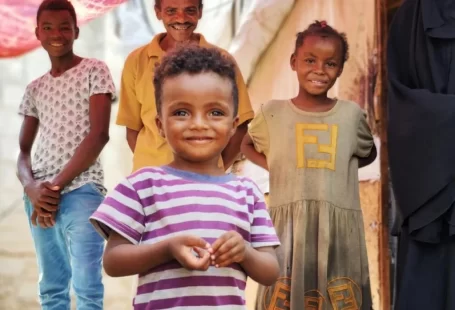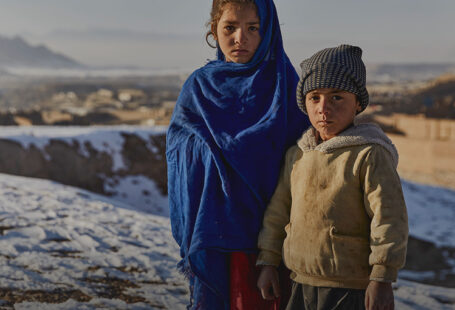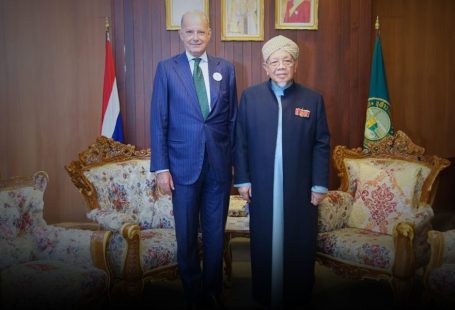Our 100% Zakat distribution policy means that all donations, which are received in a dedicated non-interest bearing bank account, are delivered directly and in full to the most vulnerable refugees and internally displaced persons (IDPs). Operational and overhead costs are covered from other sources (non-Zakat) of funding to UNHCR.
UNHCR operates an expansive network of cash assistance programs in 100 countries, through which Zakat funds are channeled and the most vulnerable families are assessed and supported. In Bangladesh, the use of Zakat funds have been used to purchase goods which provide refugee families with a safe and reliable source of energy for cooking, specifically Liquefied Petroleum Gas (LPG).
ATMs, IRIS scan, mobile wallets, and other technologies are used to deliver Zakat to vetted refugees and IDPs.
The distribution process in the following countries depicts the process of how Zakat funds are distributed to refugee and IDP families:
Jordan (Monthly):
- Upon their arrival, refugees are registered by UNHCR and their iris scans are taken.
- UNHCR schedules a home visit with each family to assess their needs using a standard questionnaire which enables a wide range of information to be gathered.
- Following the home visit, UNHCR uses a vulnerability assessment frameworks to assign each household a vulnerability ranking, which is then used to determine assistance levels.
- Based on their vulnerability scoring, the most vulnerable refugees are selected for cash assistance.
- Zakat funds are donated and directed to a non-interest bearing bank account.
- Eligible families receive a text message when the cash assistance in made available for withdrawal.
- Cash is withdrawn from ATMs using the iris scan.
Note: Unique to Jordan, UNHCR uses iris enabled ATMs for cash withdrawals. A simple iris scan, using a special iris camera attached to the ATM triggers the cash withdrawal, without the use of an ATM card or a pin number. This ensures that the person targeted for assistance is the one receiving the assistance. - Post Distribution Monitoring is carried out by UNHCR to measure impact.
Lebanon (Monthly):
- Upon their arrival, refugees are registered by UNHCR and their iris scans are taken.
- UNHCR schedules a home visit with each family to assess their needs using a standard questionnaire which enables a wide range of information to be gathered.
- Following the home visit, UNHCR and partners use vulnerability assessment frameworks to assign each household a vulnerability ranking, which is then used to determine assistance levels.
- Based on their vulnerability scoring, the most vulnerable refugees are selected for cash assistance.
- Zakat funds are donated and directed to a non-interest bearing bank account.
- Eligible families receive a text message when the cash assistance in made available for withdrawal.
- Cash is withdrawn from ATMs using a pin code.
- Post Distribution Monitoring is carried out by UNHCR to measure impact.
Egypt (Monthly):
- Upon their arrival, refugees are registered by UNHCR and their iris scans are taken.
- UNHCR schedules a home visit with each family to assess their needs using a standard questionnaire which enables a wide range of information to be gathered.
- Following the home visit, UNHCR and partners use vulnerability assessment frameworks to assign each household a vulnerability ranking, which is then used to determine assistance levels.
- Based on their vulnerability scoring, the most vulnerable refugees are selected for cash assistance.
- Zakat funds are donated and directed to a non-interest bearing bank account.
- Eligible families receive a text message when the cash assistance in made available for withdrawal.
- Beneficiaries, upon verification, can collect their cash assistance at any post office in Egypt.
- Post Distribution Monitoring is carried out by UNHCR to measure impact.
Yemen (Every two months):
- Vulnerable families are identified by community-based protection networks.
- Home-visit assessments are conducted by UNHCR protection partners.
- UNHCR agreed-upon eligibility criteria are applied to vulnerable families, verification of vulnerability and eligibility is then determined
- Household details are entered into a master database (KoBo)
- Beneficiaries’ lists are verified by UNHCR.
- Vetted beneficiaries’ lists are given to the contracted service provider – Al Amal Bank.
- Zakat funds are donated and directed to a non-interest bearing bank account.
- Disbursements are arranged by the service provider, through ‘Hawala” system.
- SMS with an individual code is sent to the family by the bank. With this code and original ID, the beneficiaries receive the cash-over-counter by one of the bank branches or through Al Amal Bank payment agents located country-wide.
- Post Distribution Monitoring is carried out by UNHCR to measure impact.
Iraq (Every two months):
- UNHCR schedules a home visit with each family to assess their needs using a standard questionnaire which enables a wide range of information to be gathered.
- Following the home visit, UNHCR and partners use vulnerability assessment frameworks to assign each household a vulnerability ranking, which is then used to determine assistance levels.
- Based on their vulnerability scoring, the most vulnerable refugees are selected for cash assistance.
- Zakat funds are donated and directed to a non-interest bearing bank account.
- Mobile money solutions are used to distribute cash assistance in Iraq
- Eligible families register for mobile wallets with mobile money companies depending which SIM card they use. In case they do not have a SIM card, one is provided for them. Registration and SIM cards are free of charge.
- Eligible families are invited by UNHCR and its partner to come to the registration/cash out centres that are managed by mobile money companies.
- Beneficiaries have to verify their identity during the mobile wallet opening and will have a personal PIN code for the wallet to be able to have access to cash assistance.
- During the distribution stage, UNHCR staff and partners will monitor cash disbursements in the field to ensure accountability of the process by confirming that intended beneficiaries receive the correct amounts of cash assistance through spot checks at distribution sites.
- Post Distribution Monitoring is carried out by UNHCR to measure impact.
Mauritania (3 times a year – May, August and November):
- Cash for Energy is provided to Malian refugees in Mbera Camp.
- The cash distribution to support vulnerable households with the purchase of charcoal is carried out three times during the year.
- Cash over the counter is provided directly by UNHCR.
- Post Distribution Monitoring is carried out by UNHCR to measure impact.
Bangladesh (needs-based):
- Providing Rohingya refugees with cooking Liquefied Petroleum Gas refills is done by UNHCR through distribution points at refugee settlements. UNHCR has constructed 2 gas depots for the purpose, with an additional 9 planned to be completed by the end of 2019.
- Training on safe handling is being provided to every beneficiary at the point of distribution and is a requirement to be eligible for the assistance.
- One family needs an average of 10 refills per year (5 refills over 6 months). The timing of the refills is based on the needs of each family: bigger families will need more refills per year, smaller families will need slightly less. People come for refills whenever their cylinders are empty.










Social Profiles